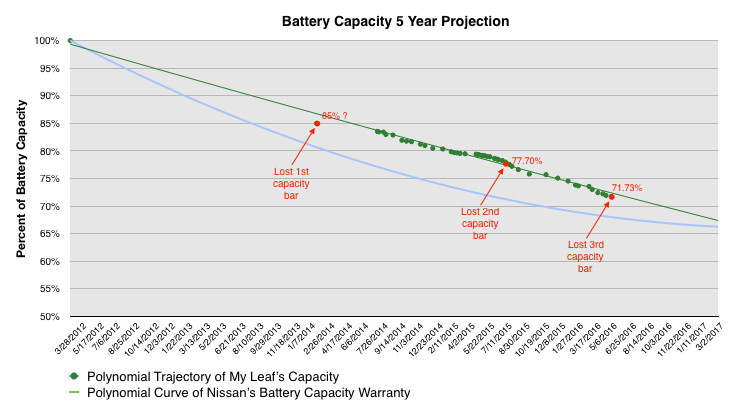sendler2112
Well-known member
It is well known here on the forum that many Leafs are losing more than 30% battery capacity in 5 years/ 60,000 miles. Even the new 2016 30kWh battery with it's more optimum NMC chemistry seems to be off to a shaky start with a few owners reporting sub par capacity already. Whereas there are Teslas with their huge, expensive , liquid cooled and heated batteries that have over 60,000 miles (and twice that) showing almost 0% loss. It seems that Leaf 2 will have to forego the price advantage of air cooling. Or Nissan can continue to promote the cheaper option with it's aggressive warranty replacement policy. Is it also the small format cylindrical cell construction used in the Teslas that allows them to last longer since no part of the cell is more than 9mm away from the liquid coolant? It will be interesting to see how well the packs hold up in the Bolt which will outsell them both for the next couple of years.
.
https://electrek.co/2016/06/06/tesla-model-s-battery-pack-data-degradation/
.
.

.
.

.
.
.
.
.
https://electrek.co/2016/06/06/tesla-model-s-battery-pack-data-degradation/
.
.

.
.

.
.
.
.
